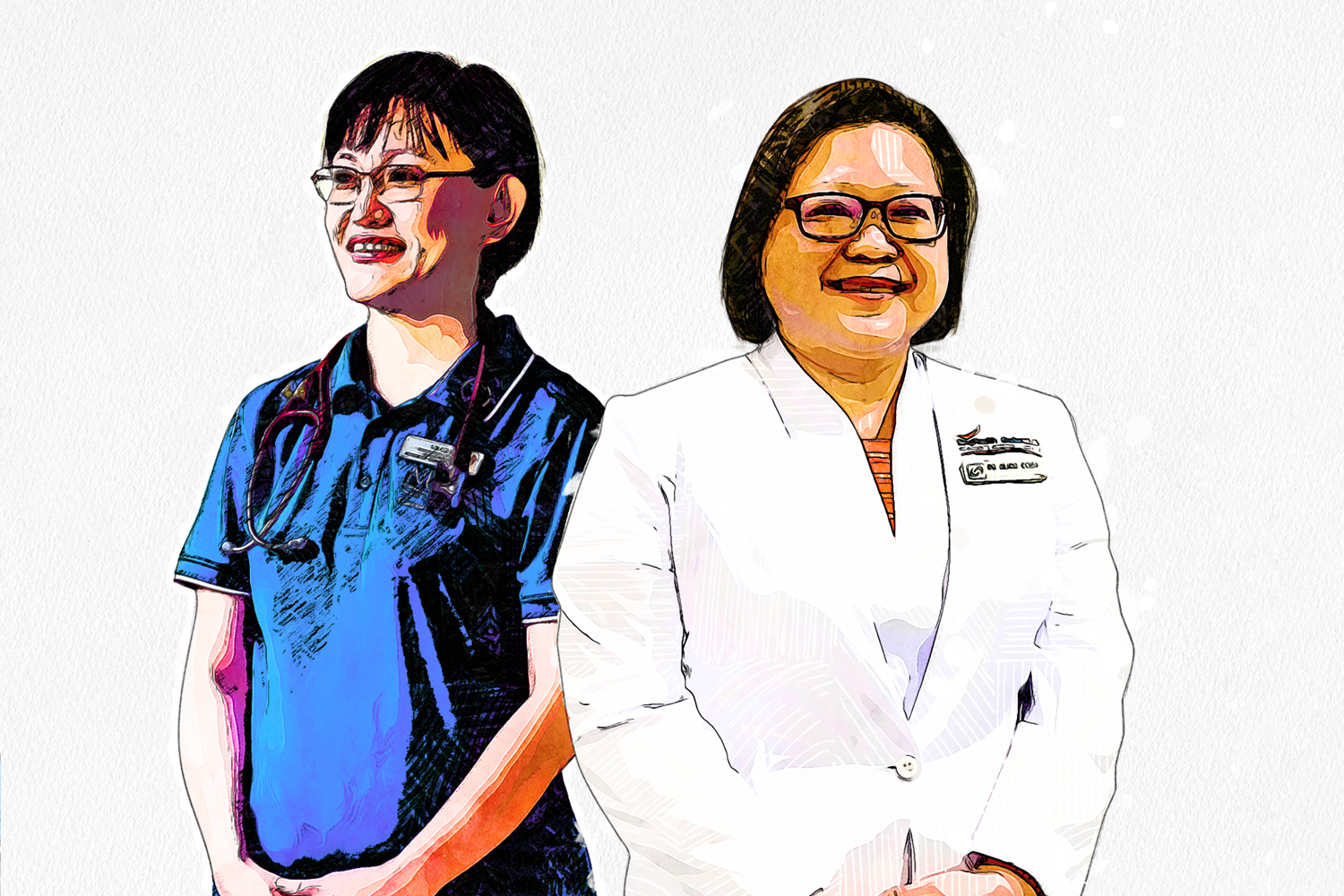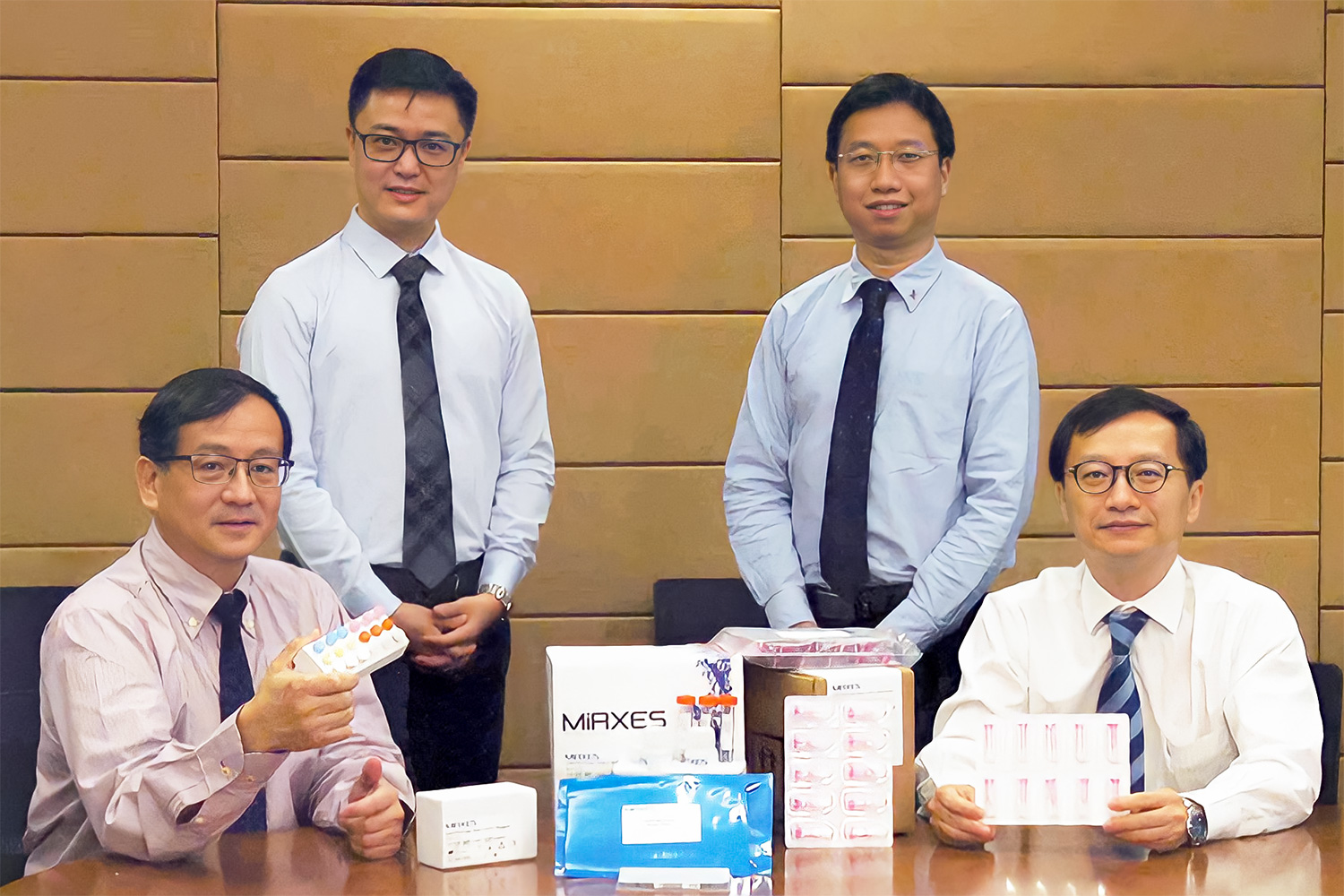
Issue 37 / February 2021
DOSSIER
Celebrating MEGIC
at NUS Medicine Educators’ Day 2020

Teachers are among the unsung heroes of the COVID-19 pandemic. They deftly adapted to the Circuit Breaker that brought traditional teaching to a screeching halt, finding alternative means to connect with and care for their students. Our educators have persevered and are continually adjusting their teaching to accommodate the necessary safety measures, innovating in order to impart their knowledge despite the continued restrictions on clinical training. Therefore, in special recognition of our educators, NUS Medicine collaborated with NUHS to organise a month-long series of events “Celebrating Education as OneNUHS” from 18 September 2020.
A
special programme was dedicated to celebrating education and educators, who held webinars, Grand Round Talks and other activities. This included an introduction to medical humanities by Assistant Professor Michael Stanley-Baker and a discussion of the concept of “self-identity” by Dr Alison Tan. Professor Esuvaranathan Kesavan shared his insights on coaching in medicine, while Associate Professor Tan Chay Hoon, Associate Professor Celestial Yap and Dr Inthrani Raja Indran spoke about the impact of disruptive behaviour in healthcare.
In addition, there was a complementary series of online thematic sharing sessions on education innovation, to share inspiration and ideas to enhance medical teaching. Associate Professor Alfred Kow presented how gamification and virtual reality could be integrated to enhance the inter-professional training of patient safety. Associate Professor Nicola Ngiam showcased the use of standardised patients to effectively provide students with an alternative to real patient contact, which is especially relevant given COVID-19 restrictions. Finally, Professor Edmund Lee, Dr Soh Jian Yi, Dr Judy Sng Chia Ghee and Dr Chen Zhi Xiong contributed to a panel discussion about the use of virtual patients in training clinical reasoning skills.
NUS Medicine Educators’ Day: celebrating innovation and resilience
The activities culminated in NUS Medicine Educators’ Day on 23 October 2020. The focus remained on innovation, with the highlight of the event being the finals of the inaugural Medical Education Grand Innovation Challenge (MEGIC). Similar to the Medical Grand Challenge for students, this competition is in line with the School’s efforts to enhance the effectiveness of student learning through advances in pedagogy and technology.
14
teams worked on ideas
for the inaugural
Medical Education
Grand Innovation
Challenge, or MEGIC
14 teams worked to propose solutions that address unmet needs and opportunities to enhance medical education. These teams included members from different professions, disciplines and institutions, which was an encouraging sign of multidisciplinary collaboration.
Eight teams were eventually selected for the finals on Educators’ Day, which was conducted entirely online. They presented their work to an esteemed panel of judges who included Vice-Provost Associate Professor Erle Lim; Professor Lakshminarayanan Samavedham, Director of the Institute for Applied Learning Sciences and Educational Technology (ALSET); and Associate Professor Lau Tang Ching, NUS Medicine Vice-Dean of Education. The judging was moderated by Dr Dujeepa Samarasekera, Director of the Centre for Medical Education (CenMED).
Invited guest Professor Lambert Schuwirth delivered a keynote address on “Developing resilience and innovation in medical education research”. Prof Schuwirth is the Strategic Professor in Medical Education at the College of Medicine and Public Health, Flinders University, Australia. He is also the Director of the Flinders University Prideaux Centre for Health Professions Education.
Prof Schuwirth discussed how the role of a teacher has evolved from one of an “enabler” to “partner” and “nurture” students. Teachers help students to “make meaning” and overcome as well as learn from adverse events. The value proposition of medical education itself needs to be reconsidered, as one comes to consider the journey of learning and discovery instead of only concentrating on the final ‘product’.
Medical education innovation requires an understanding of key fundamental principles—human learning, assessment and medical education research itself, which is distinct from clinical research. To develop appropriate solutions, it is important to understand how society itself has changed and how preferences of students today have evolved. As such, innovation in this field includes a need to curate problems (not just solutions) and facilitate online collaborations and peer-to-peer engagement in support of learning. Despite the bleak situation in which the world now finds itself, Prof Schuwirth expressed the hope that it might spark a variety of new ideas.
The Educators’ Day event concluded with a special segment in appreciation of staff who received the NUS Medicine Fortitude Award. This award was given to educators and administrators who went beyond the call of duty to enable NUS Medicine to complete the academic year and graduate the AY2019 cohort of doctors. Thanks to the tremendous effort of these award recipients during the initial months of the COVID-19 pandemic, the School was able to successfully adapt and continue teaching, assessment and other activities.
Click here for an in-depth look at the innovations under MEGIC.
The following teams won prizes at the finals of the inaugural Medical Education Grand Innovation Challenge (MEGIC).
![]()
Grand Prize
Team Sanctum won the Grand Prize for developing a prototype of a pharmacology quiz application to promote active learning and higher order thinking. This application reinforces students’ knowledge of different drugs through “Drug Cards” and “Knowledge Buckets”, then offers a “Question Bank” for students to apply their learning, with progress reports generated as a means of providing user data analytics for both student and faculty use.
Team members: Matthew Chew, Chua Yun Da, Gabriel Tan, Daniel Chew, Ryan Tan, David Chew, Ryan Tian, Nicole Tan, Nicholas Jin, Victoria Leong and Kim Haejin.
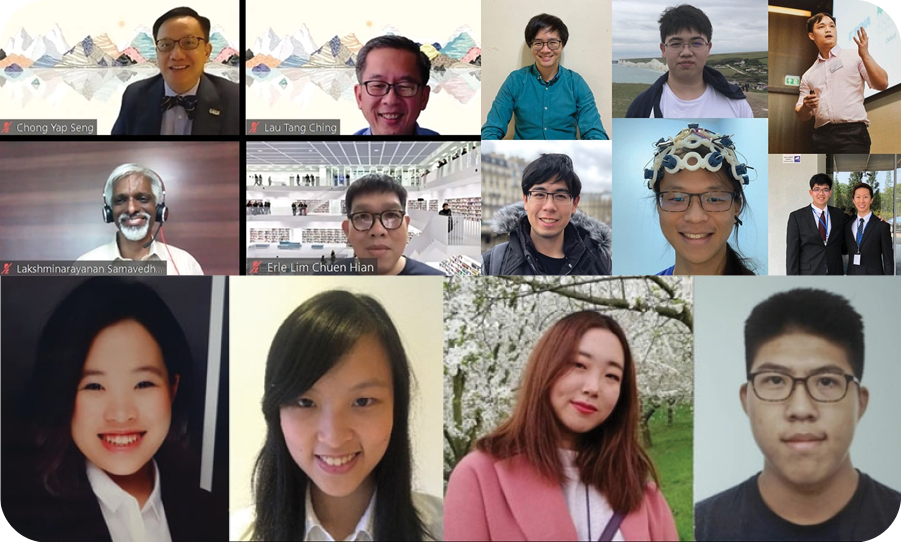
2nd Prize
Team Surgical Anatomy won the Second Prize for their project titled “Teaching of Normal and Abnormal Human Structure Through the Use of Surgical Videos”. This collaboration between the NUS Departments of Surgery and Anatomy saw the production of guided video tutorials using surgical footage to teach anatomy, effectively integrating preclinical and clinical teaching.
Team members: Assoc Prof Dinesh Kumar Srinivasan, Dr Chong Choon Seng, Dr Ian JW Tan, Prof Hooi Shing Chuan, Caroline Zamora Bersalona and Nicholas Wong.
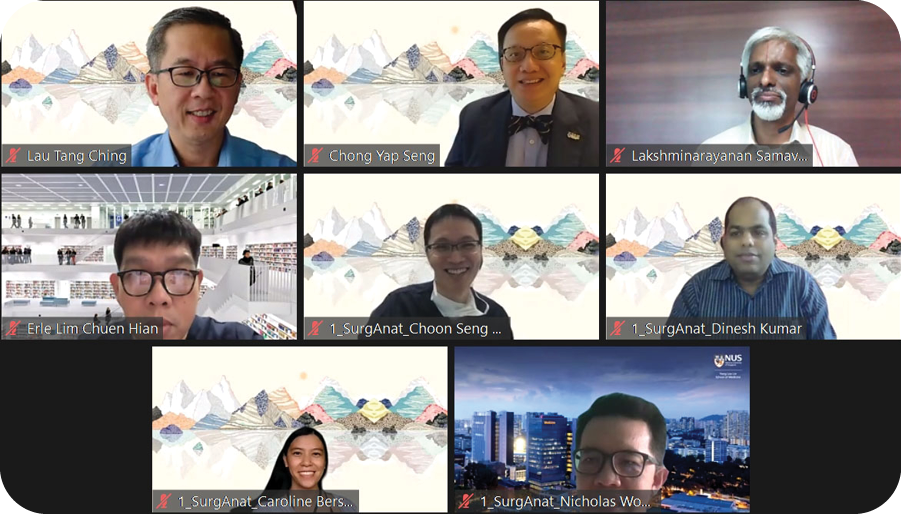
3rd Prize
![]()
Best Video award
Team Medicine Learning & Teaching RoadmApp (MLTR) won the Third Prize and Best Video award for their project “Compass 2.0”, which sought to make “Compass”, the 1,000-page NUS Medicine curriculum document, easier to navigate by converting it into an app. In doing so, the team also aims to empower students and enhance their learning while improving tutors’ oversight of their students.
Team members: Liu Ching Man, Dr Norshima Binte Nashi, Shelvi,
Dr Lionel Lum, Leong Yong Shin and Chong Voon Foo.
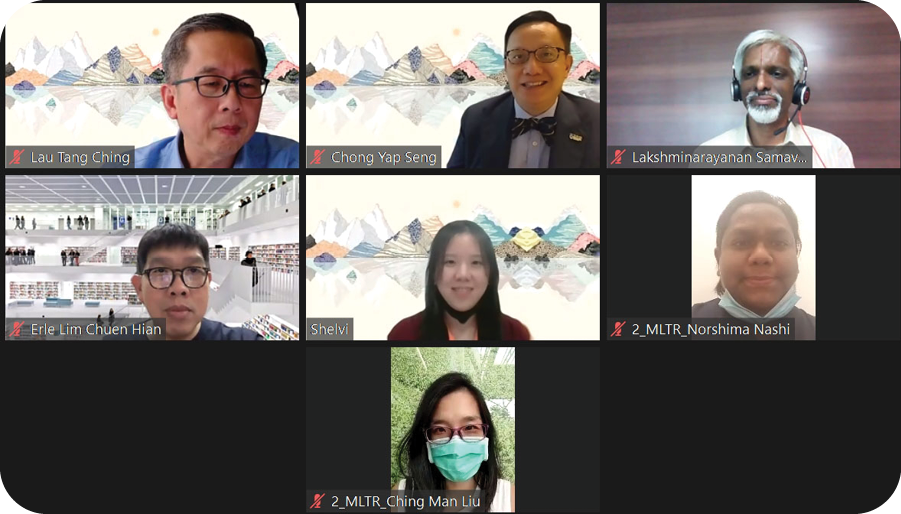
Special Mention award
Team MRI Safety in Healthcare won a Special Mention award for their project on “Gamification as a learning tool for MRI safety”, which created games to promote magnetic resonance safety for staff in the radiology department. For example, one game provides training for work using a virtual radiology department. Game-based learning also enables the simulation of dangerous situations such as a radiology accident that places the learner in crisis mode, challenging their responses and testing their knowledge and skills.
Team members: Cheng Qianhui, Dr Yu Wai Yung, Dr Joanna Ti, Oh Hui Ping and Assoc Prof Sitoh Yih Yian.
![]()
Special Mention award
Team VASE also won a Special Mention award for their project proposing the concept of Video Assisted SElf (VASE) learning of mental health conditions. They proposed that videos could address the challenge of limited opportunities to interact with and examine real patients. Videos would also avoid potential issues related to informed consent and help boost interest and empathy towards mental health patients.
Team members: Dr Charity Low, Dr Paul Ang, Dr Kumi Mehara, Dr Eugene Chua, Dr Roy Teow and Dr Lim Choon Guan.



